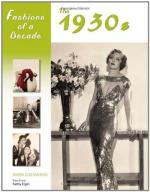|
This section contains 272 words (approx. 1 page at 300 words per page) |

|
Other educational studies during the decade focused on specific academic disciplines. The National Council of Teachers of English revised its curriculum in the 1930s in response to the large number of new students entering high school. Following the progressive educators, they added to traditional subject matter applied English in telephone conversations, business, and other practical settings. In 1940 they published the resuits of this new "experience curriculum," judging it to be "a model of curriculum construction." Conservatives were less enthusiastic. The writer and critic Wilson Follett condemned the new curriculum. "Pupils," he explained, "who cannot be trusted to give a plural subject a plural verb are now coached in the tricks of dramatic construction, the aesthetics of literary criticism, the canons of the short story, and the composition of free verse, all in the name of ‘self-expression.' " Similar curricular innovations and surveys conducted...
|
This section contains 272 words (approx. 1 page at 300 words per page) |

|




